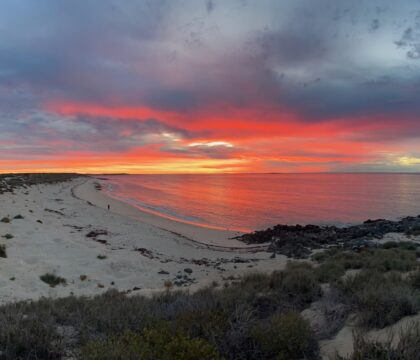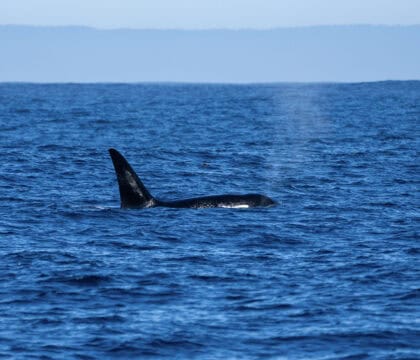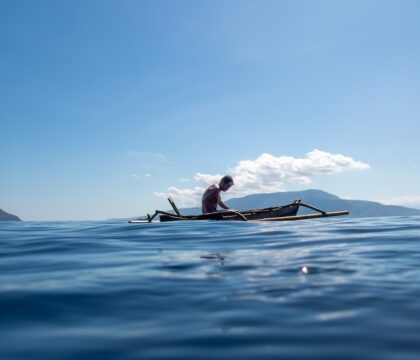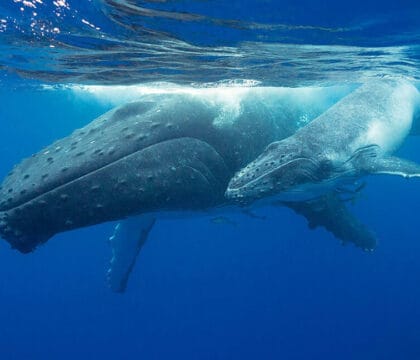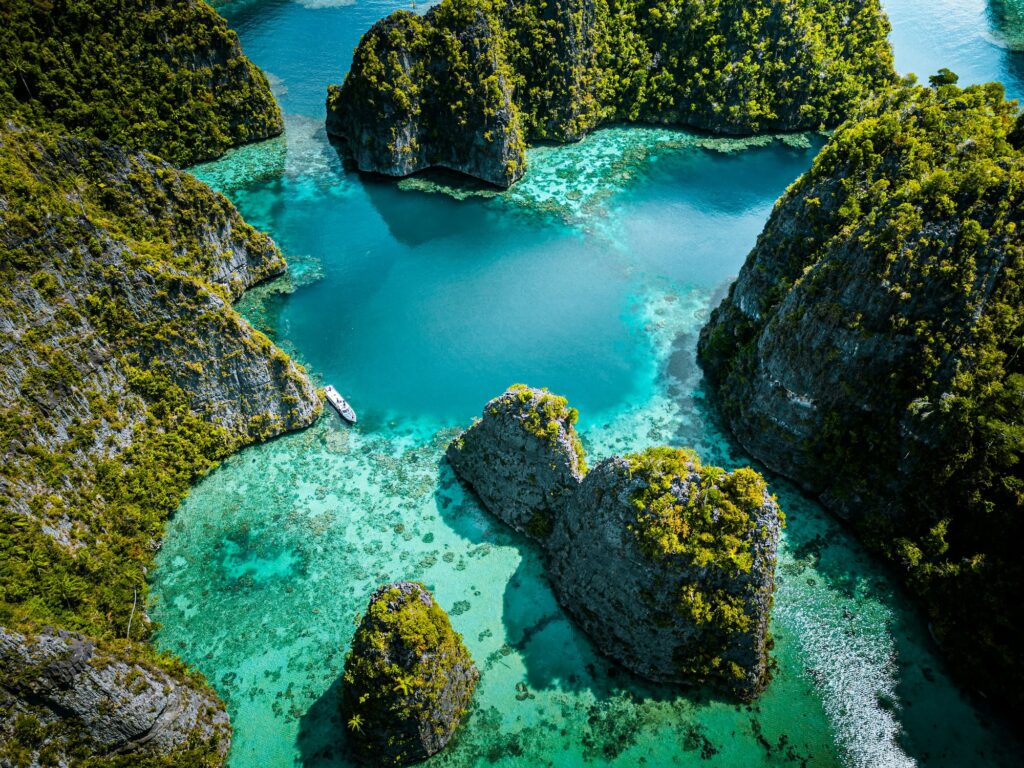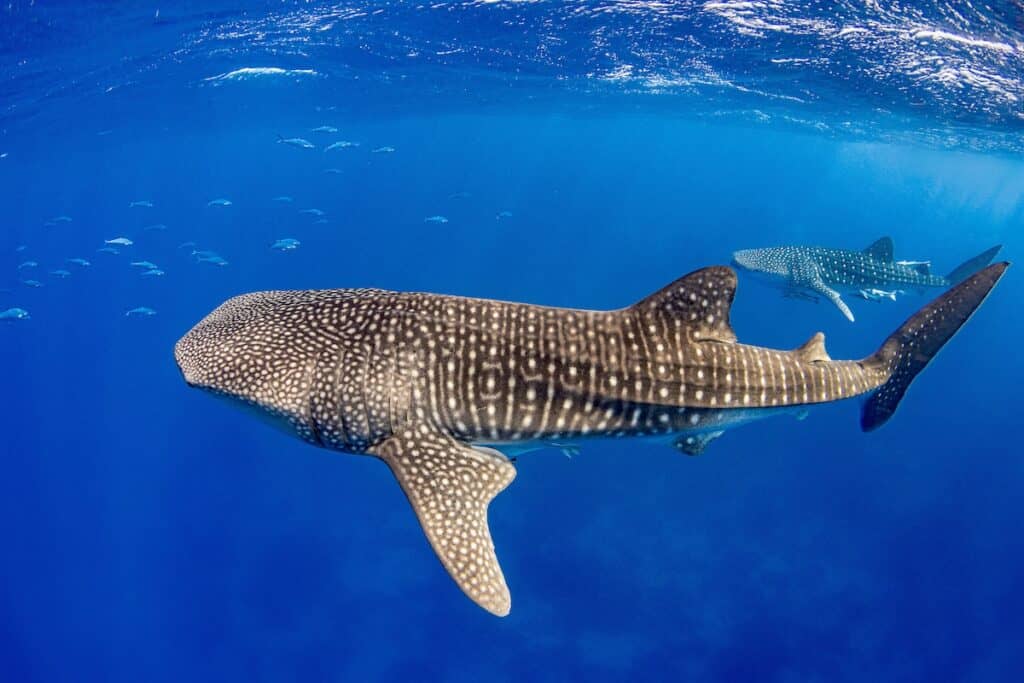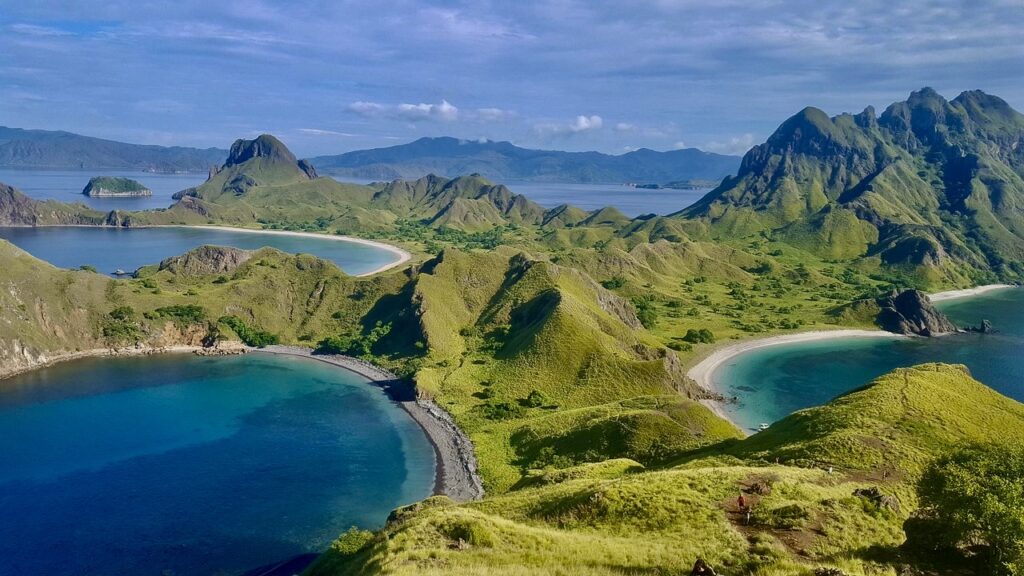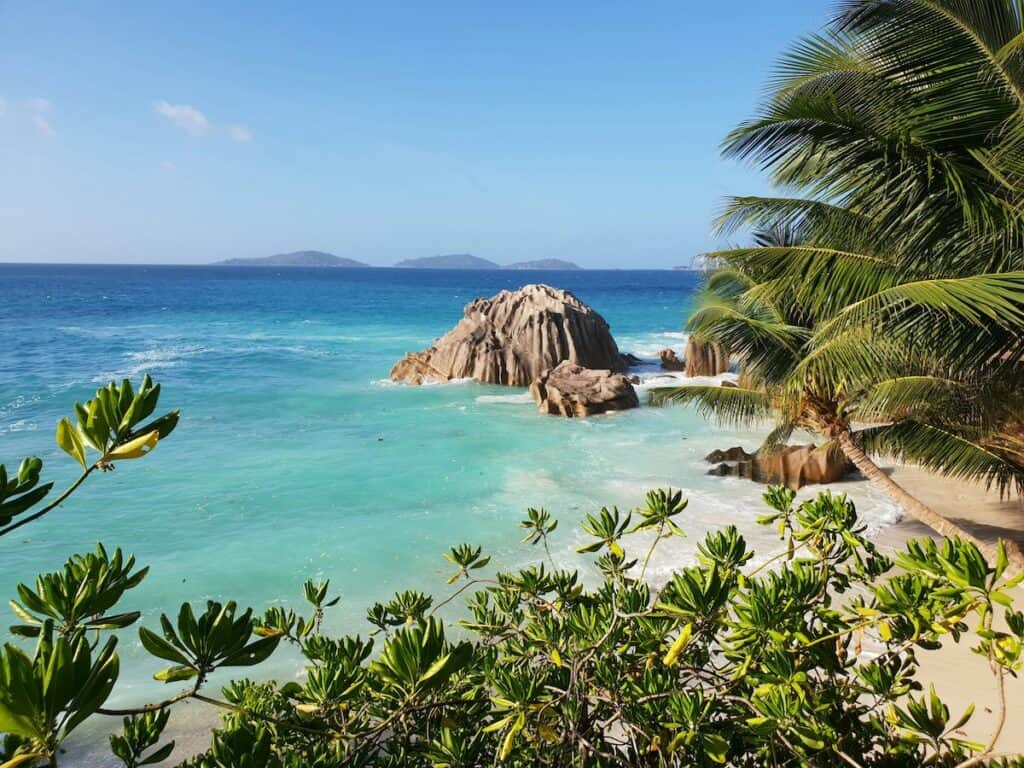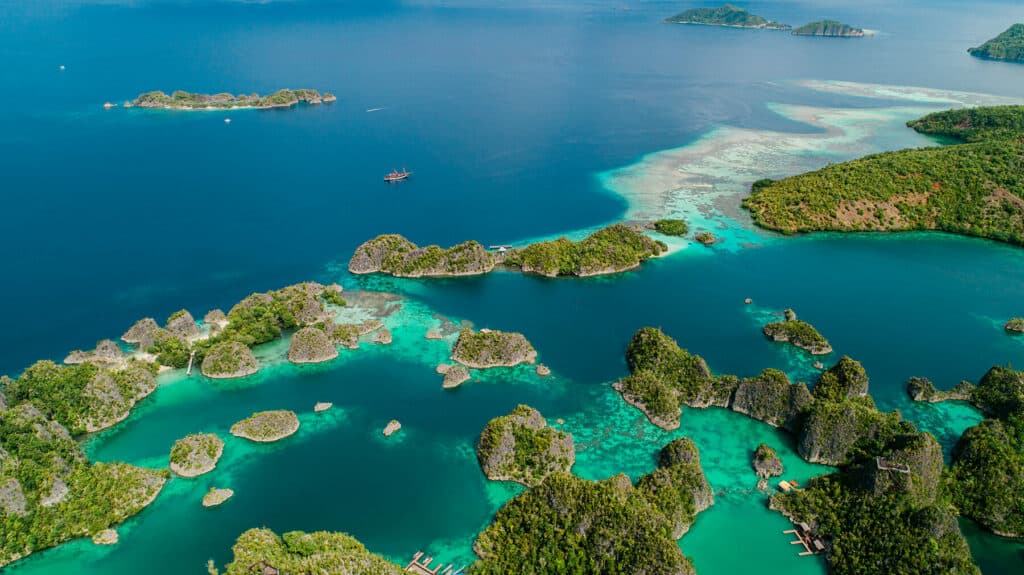February 4, 2020 • News Announcements, Ocean Facts, Program Updates
We are elated to present the fourth episode of our Blue Habits docu-series that examines key issues in ocean conservation, such as plastic pollution, sustainable seafood and tourism, and now, climate change. Each episode was filmed during one of our Five for 50 Expeditions, which brought together travelers, influencers, and conservationists working to protect the ocean in some of the world’s most important ocean habitats. The stunning coral reefs of Raja Ampat, Indonesia are the focus of our latest episode, in which we examine the impacts of climate change on coral reefs through the eyes of artist Courtney Mattison. A sculptor and ocean advocate with a background in marine biology, Courtney creates large, intricately detailed ceramic coral reef installations that populate walls across the world, including the U.S. Embassy in Jakarta, Indonesia. Through her work, Courtney aims to build monuments to the beauty and fragility of coral reefs. In her words, “combining science and art is a powerful way to represent the fact that coral reefs are at a turning point.”
Watch Blue Habits: Episode 4, Raja Ampat — Climate Change and Coral Reefs

Raja Ampat, Indonesia — Heart of the Coral Triangle
Located in Indonesia’s West Papua Province, the Raja Ampat Archipelago is at the heart of the most biodiverse marine region on Earth—the Coral Triangle. Aptly named, this region contains more than 30% of the world’s coral reefs and 75% of known coral species. Home to more than 2,000 species of reef fish, 600 species of coral, 6 species of sea turtle, plus cetaceans, sharks, and invertebrates, the Coral Triangle’s reefs burst with life unlike anywhere else in the ocean.
However, like other coral reefs, Raja Ampat and the Coral Triangle are under pressure from human-induced climate change. In fact, climate change is considered to be the greatest threat to coral reef ecosystems globally.
One of the ways in which climate change is impacting coral reefs is through coral bleaching, a process that occurs in response to warming waters (learn more about corals and climate change here). Coral reefs that have “bleached” are a heartbreaking visual example of climate change’s impacts on the ocean.
Saving Coral Reefs Through Art
The contrast between a healthy reef and a reef that has experienced a bleaching event is startling, and such a sight at Australia’s Great Barrier Reef left a lasting impression on Courtney, “Seeing bleaching like that changed everything for me, because I could actually visualize climate change.”
“Seeing bleaching like that changed everything for me, because I could actually visualize climate change”
Motivated by what she saw, Courtney dedicated her work to inspiring action on behalf of the ocean. “When someone looks at one of my works, I hope they’ll be kind of seduced by the colorful, healthy corals at the heart of the swirl. And then I hope they stand back and realize what’s happening. I hope that it will spark a sense of caring in viewers, enough to protect them.” While many reefs have been lost due to climate change and other threats, there is still time to take action to protect those that remain.
Combating Climate Change, Together
Tackling climate change can seem like an insurmountable challenge. The good news is that a growing majority of people worldwide see climate change as a major threat, and more and more people are getting involved in efforts to combat climate change each day. Although we may feel small on our own, our individual actions make a big difference when taken together. Courtney takes her inspiration from corals, the small, colonial animals that together create beautiful reefs—“even one tiny human can make a gigantic difference if they focus their efforts.” Voting for politicians with climate solutions, choosing renewable energy, and supporting climate-friendly businesses are just some of the ways you can reduce your climate footprint.
About Five for 50
To commemorate our golden anniversary and to generate the attention, enthusiasm, and resources needed to confront the next 50 years of ocean conservation challenges, we organized a series of five exclusive expeditions in 2018–2019. These Five for 50 expeditions began with an expedition to Palau to examine the issue of plastic pollution with Fisk Johnson, the CEO of SC Johnson. The second expedition explored sustainable tourism with whales and whale sharks in Baja California, Mexico, and the third expedition examined sustainable seafood and sea turtle bycatch through the lens of renowned chef, Trevor Kunk.

